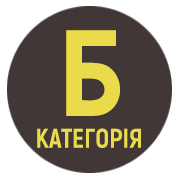ПОЕЗІЯ «НАЙЖАХЛИВІШЕ ТОК-ШОУ У СВІТІ» МАКСИМА КРИВЦОВА: СПРОБИ ПОШУКУ НОВОЇ ПОЕТИЧНОЇ МОВИ
DOI:
https://doi.org/10.32782/folium/2025.7.30Ключові слова:
Максим Кривцов, ветеранська поезія, нова поетична мова, Тадеуш Ружевич, травматичний досвід, монолог.Анотація
У статті аналізується поезія Максима Кривцова «Найжахливіше ток-шоу у світі» як приклад становлення нової поетичної мови, здатної відтворювати емоційний досвід сучасної війни та психостани її учасників художніми засобами. Дослідник доводить, що війна кардинально руйнує звичні мовні коди, змінює семантичні поля й змушує митців шукати нові виражальні можливості слова. Методологічну основу дослідження становлять герменевтичний, компаративний, психологічний методи та інструментарій аксіологічних студій. Його метою є виявлення багатоголосся втрат, травм та відчуження у поезії Кривцова, зокрема, крізь призму бінарної опозиції «ми – вони». У статті показано, що ця опозиція відходить від традиційної схеми «воїни – ворог» і трансформується у вимір «воїни – глядачі», що підкреслює проблему непорозуміння між фронтом і тилом, неможливість повноцінного діалогу та спільного осмислення пережитого досвіду. Важливим складником аналізу поезії Кривцова є інтертекстуальний діалог із думками сучасних літераторів, а також твором «Ocalony» польського поета Тадеуша Ружевича. Обидва автори акцентують на втраті сенсів, необхідності пошуку нової мови й нових світоглядних орієнтирів після катастрофи, спричиненої війною. Дослідження демонструє, що Кривцов послідовно уникає героїзації чи пафосного піднесення, натомість через парадоксальні зіставлення, іронію, образ ток-шоу та мотиви сну створює простір ірраціональної реальності, котра межує з абсурдом. Така поетика дозволяє розкрити глибину посттравматичного досвіду, показати кризу комунікації, руйнування людських зв’язків і процес дегуманізації, які супроводжують сучасну війну. Отже, поезія Максима Кривцова є яскравим свідченням народження нової мови, здатної репрезентувати трагедію людини у світі, де звичні слова втрачають свою силу й потребують переосмислення.
Посилання
Великий тлумачний словник сучасної мови (2025). URL: https://slovnyk.me/dict/vts/%D1%82%D0%BE%D0%BA-%D1%88%D0%BE%D1%83 (дата звернення 24.08.2025)
Гансен, А. (2022). Інстамозок. Як екранна залежність призводить до стресів і депресії. Київ : Наш Формат. 200 с.
Герасименко, Н. (2023). Сучасна воєнна проза: жанрово-стильова типологія. Слово і Час, 3, 35–49.
Жадан, С. (2022). Хай це буде текст не про війну. URL: https://chytomo.com/serhij-zhadan-khaj-tse-bude-tekst-ne-pro-vijnu/ (Дата звернення 24.08.2025)
Кривцов, М. (2024). Вірші з бійниці. Київ : Наш Формат. 192 с.
Крук, Г. (2023). Шкода, що поезія не вбиває. Поміж сирен. Нові вірші війни. Харків : Видавництво “Vivat”. С. 481–484.
Москалець, К. (2023). Чорне на чорному. Воєнний стан: антологія. Чернівці : Видавець Померанцев Святослав. С. 205–209.
Пастух, Т. (2024). До нового канону української поезії. URL: https://zbruc.eu/node/117641 (дата звернення 24.08.2025).
Поліщук, Я. (2024). Себеписання в умовах війни. Київ, 9–10, 163–168.
Поліщук, Я. (2016). ARS MASACRAE, або Про те, чи є поезія на війні. Слово і Час, 7, 3–11.
Прохасько, Т. (2010). FM “Галичина”. Івано-Франківськ : Лілея-НВ. 52 с.
Слапчук, В. (2023). Я поезії вчився… не як бальних танців, а як вчаться єдиноборств. Українська літературна газета, 11, 26–27, 36.
Сливинський, О. (2023). Передмова. Словник війни. Харків : Віват. С. 5–7.
Словник української мови (2005). URL: https://slovnyk.ua/index.php?swrd=парадокс (дата звернення 24.08.2025)
Содомора, А. (1999). Наодинці зі словом. Львів : Центр гуманітарних досліджень Львівського державного університету імені Івана Франка. 480 с.
Цоба, Я. (2024). Комбатантська проза. URL: https://zbruc.eu/node/118185 (дата звернення 24.08.2025).
Radar (2025). Навіть під час війни поезія нікому нічого не винна... URL: https://e-radar.online/
pl/magazyn/01-2025/nawet,w,czasie,wojny,poezja,niczego,nie,musi,3.html (дата звернення 24.08.2025)
Różewicz, T. (1997). Wybór wierszy. Львів : Каменяр. 228 с.
##submission.downloads##
Опубліковано
Як цитувати
Номер
Розділ
Ліцензія

Ця робота ліцензується відповідно до Creative Commons Attribution 4.0 International License.











